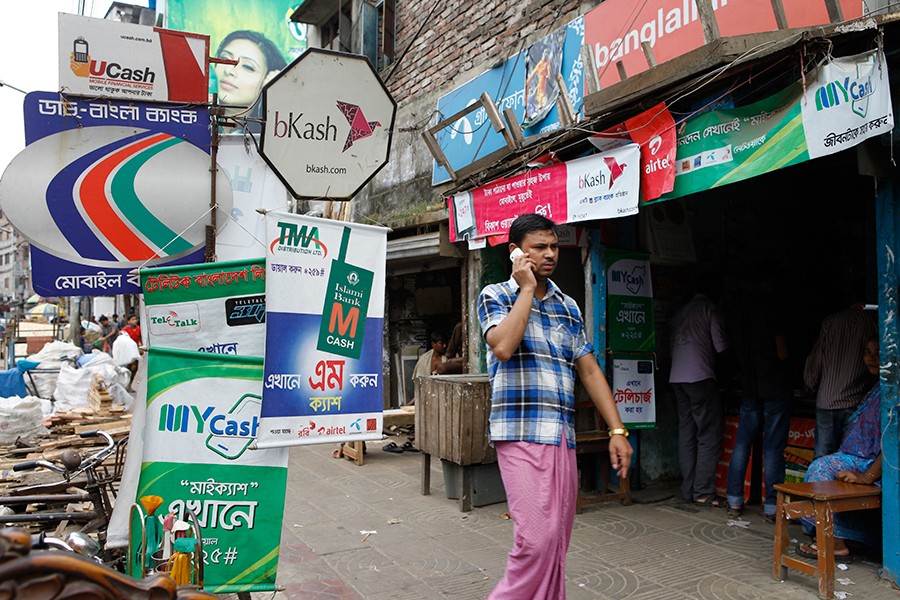The country's top mobile financial service (MFS) providers have sparred over the possible impact of the new MFS regulations.
Some have termed the new regulations timely and effective, but others have alleged that there will be largely a status quo in the mobile financial service arena.
On July 30, the Bangladesh Bank issued a new set of regulations to regulate the MFS business.
Talking to the major MFS providers, it has been clear that there is a difference of opinions on the new set of regulations.
"The new regulations won't bring any essential change in the market," said Abul Kashem Md Shirin, managing director and CEO of Dutch Bangla Bank Limited.
The bank owns the popular Rocket service in the MFS market.
"I doubt that the new regulations will effectively bring the much-needed competition in the MFS arena," Mr Shirin told the FE.
About the new regulations, he pointed out that mobile operators were even barred from forming subsidiary or partnership with banks for providing any MFS.
"Without mobile operators, it will be hard to bring large-scale investment in the MFS arena," Mr Shirin argued.
He said, "Without operators, it's highly unlikely that entities like non-governmental organisations will be interested in investment in MFS."
bKash, the MFS monopoly in the country, does not echo Mr Shirin's views on the matter.
Talking to the FE, bKash CEO Kamal Quadir said the latest regulations would help 'bring more players, more competition and more products' in the MFS market.
MFS providers are now prohibited from lending from their own funds, he added.
But they can continue to act as agents of banks, financial institutions, non-government organisations (NGOs) and micro-finance institutions in disbursement of loans and repayments.
"This would help expand access to credit facilities for the rural population while bringing down the cost of loans," the bKash CEO mentioned.
MFS operators believe the new policy has brought better clarity regarding how the MFS market should operate.
"The new system has brought more clarity of how the MFS market should operate," said Shahadat Khan, CEO of SureCash, another major MFS provider.
Meanwhile, the new system has made inroads for long-awaited interoperability in delivering such services.
The regulations stipulate that MFS providers will design their procedures so that they can provide fund-transfer services in an inter-operable way.
This may include fund transfer from one MFS personal account to another with the same provider or another as well as payments from one MFS account to a bank account with the same parent bank or another and vice versa.
About this, Bangladesh Bank General Manager Lila Rashid said they were hopeful of introducing interoperability within MFS operators "by the end of this year".
"Once the first phase is successful, we would go for interoperability between MFS accounts and bank accounts," she said.
The new regulations are also apparently set to go tougher on numerous name-only MFS providers.
"Existing MFS provider(s) will be monitored for 12 months after the issuance of the regulations. Licence of existing non-performing MFS may be cancelled…," the regulations said.
"Currently, there are 18 listed MFS providers, but many are almost dysfunctional," Ms Rashid said.
"We'll watch them closely for the next twelve months and will scrap their licences if there is no sign of rejuvenation from their side."
Bangladesh has seen a proliferation of such financial services in recent years mainly due to an apparent lack of a formal banking channel in the backwoods.
A total of 192,594,506 transactions took place through MFS platforms this June alone.
The total value of the transactions is around Tk 332.13 billion.


